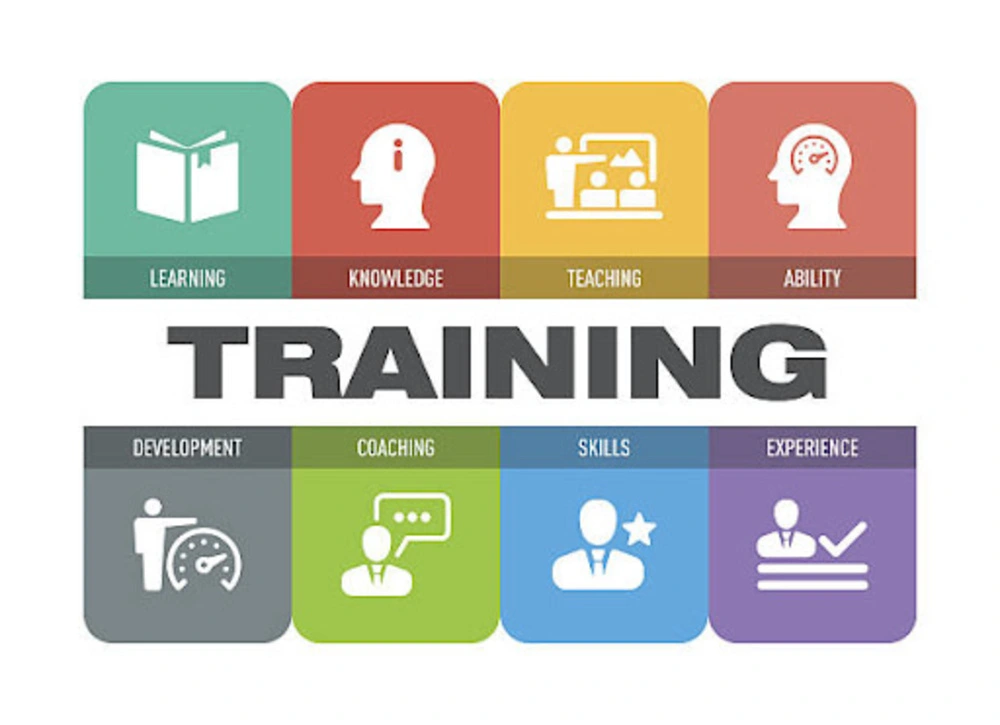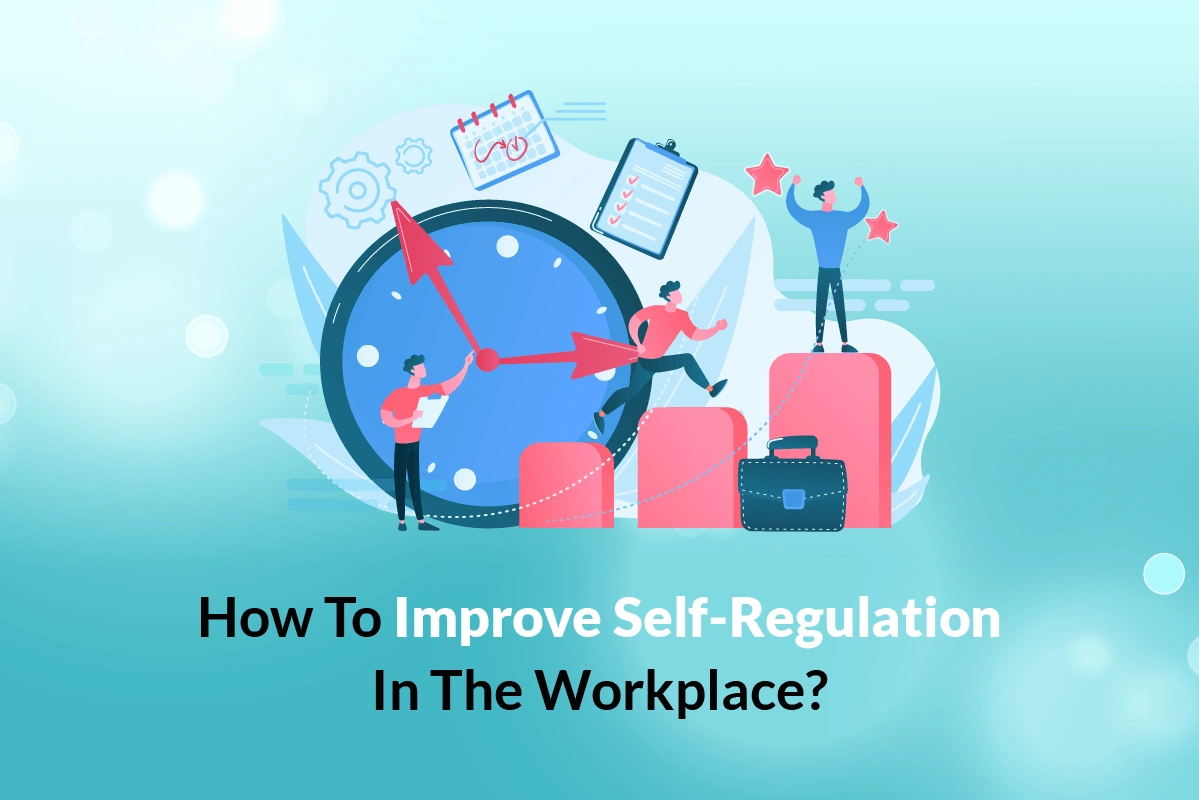Self-regulation in the workplace is a key factor to success. It’s important for workers to stay motivated, be self-directed and have self-control when it comes to managing their work and activities.
In this guide, we will be looking at various strategies and techniques to help improve self-regulation in the workplace. So read on to find out how you can be more self-regulated and successful in your career.
What Is Self-Regulation in the Workplace?
Self-regulation is a set of strategies used to regulate and manage one’s behavior in the workplace. It is an important aspect of any successful organization, as it helps to create an environment that is conducive to productivity and success.
Self-regulation can be improved by setting clear expectations for employees regarding how they should behave in the workplace. This includes setting standards for dress, language, and other forms of behavior.
Moreover, employees should be encouraged to take responsibility for their own actions and to think through potential consequences before they act.

It is also important to establish an open flow of communication between management and employees. This can help create a culture where issues can be discussed without fear of retribution or criticism.
Additionally, it is essential to provide employees with the resources they need to succeed, such as access to developmental opportunities and feedback on their performance.
Finally, rewards should be given for positive behavior. This could include recognition (e.g., verbal praise or awards), however small; tangible incentives such as bonuses; or other forms of appreciation. Rewards should be given in a timely manner to encourage employees to continue engaging in self-regulatory behaviors.
By following these strategies, employers can create an environment where employees are better able to regulate their own behavior and perform at their best. This will lead to improved productivity, morale, and overall success of the organization.
How Does Self-Regulation Affect Your Work Performance?
Self-regulation is an important factor in workplace performance, as it directly affects your ability to stay focused and productive. Self-regulation is the process of controlling one’s thoughts, feelings, and actions to achieve a desired outcome. It involves the ability to recognize and manage emotions, set goals, delay gratification when necessary, regulate impulsivity and behavior, and stay aware of one’s environment.
When self-regulation skills are weak, it can be difficult to manage emotions, focus on tasks, and resist distractions. This in turn can lead to a decrease in productivity, difficulty meeting deadlines, and increased stress levels. On the other hand, when self-regulation is strong, employees can be more productive and better able to manage the pressures of work.
Improving self-regulation can have a positive effect on workplace performance and help employees reach their goals more effectively. Here are some tips for improving self-regulation in the workplace:
- Establish Clear Goals: A goal that is well-defined and measurable will help you stay focused and motivated. Taking the time to set meaningful goals can help you stay on track and achieve results.
- Monitor Your Thoughts and Emotions: Learning how to recognize when your thoughts or emotions are getting in the way of achieving a goal is important. Being aware of these patterns can help you make better decisions and improve self-regulation.
- Practice Self-Discipline: Taking the time to develop self-discipline and practice delaying gratification can help you stay on track and reach your goals more effectively.
- Take Breaks When Needed: It is important to take regular breaks when needed in order to remain productive, reduce stress, and avoid burnout.
- Seek Support: When self-regulation becomes difficult, it is important to ask for help from colleagues or supervisors. Seeking support can help you stay on track and manage work-related stressors more effectively.
By improving self-regulation skills in the workplace, employees can be better able to stay focused, set goals, delay gratification, and manage emotions.
How to Improve Self-Regulation at Work with Its Skills?
Self-regulation is the ability to control one’s emotions, behavior, and thoughts in order to achieve a desired goal. Self-regulation also involves setting goals, monitoring progress, and making changes if needed.
In the workplace, self-regulation can help employees manage stress, stay focused and motivated, increase productivity, and build better relationships with their co-workers and supervisors.

There are a number of skills associated with self-regulation that can be learned and practiced to help improve it in the workplace. Here are some tips for improving self-regulation at work:
- Practice Mindful Awareness: Mindful awareness is about being present in the moment, aware of your thoughts and feelings, and accepting them without judgment. This can help you to stay focused on the task at hand and be less reactive to stressful situations.
- Set Priorities: Setting priorities is an important part of self-regulation. Having a clear understanding of what needs to get done can help you stay on track and keep your focus on the most important tasks.
- Break Down Tasks: Breaking down tasks into smaller, more manageable pieces can help you stay on track and avoid becoming overwhelmed. Set realistic timelines and break tasks down into achievable chunks to ensure that they are completed in a timely manner.
- Practice Self-Discipline: Having the discipline to stick to your goals will help you stay focused and motivated. Make sure that you are holding yourself accountable and that you stay on track with your tasks.
- Build Positive Relationships: Building positive relationships in the workplace can help create a more supportive environment, which can lead to improved self-regulation. Encourage collaboration and communication amongst co-workers so that problems can be solved together.
- These tips can help you improve your self-regulation skills in the workplace so that you can be more productive and successful.
- Practicing mindful awareness, setting priorities, breaking down tasks, practicing self-discipline, and building positive relationships can all contribute to better self-regulation at work.
With these strategies in place, you will be better equipped to manage your emotions, stay focused, and achieve success in the workplace.
By implementing these tips into your daily routine, you can become better at self-regulation and increase productivity in the workplace. This will lead to greater success for both yourself and your organization. So start practicing today and improve your self-regulation skills!
Boulo Solutions Can Help You Regulate with the Best Hires
When it comes to improving self-regulation in the workplace, one of the most effective tools is hiring the right people. Boulo Solutions can help you build a team that has strong self-regulation skills so that everyone works together and follows organizational guidelines.
References
- Gorke, G. (2020). Self-Regulation – Core Emotional Intelligence Capacity – Control of Oneself by Oneself. Gale Gorke. Retrieved from https://www.iyi.org/wp-content/uploads/2020/02/Self-Regulation-Handout.pdf
- Robert G. Lord, James M. Diefendorff, Aaron M. Schmidt, and Rosalie J. Hall. (2018). Self-Regulation at Work. Akron: University of Akron. Retrieved from https://ssrlsite.files.wordpress.com/2018/01/lord-diefendorff-schmidt-hall-2010-self-reg-at-work.pdf

